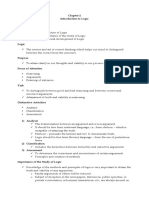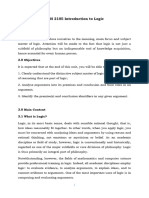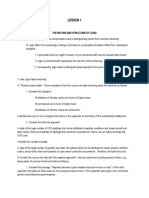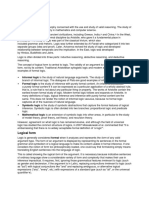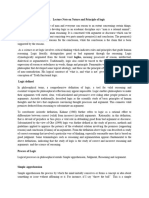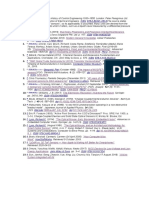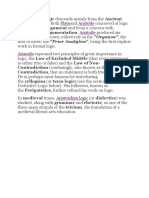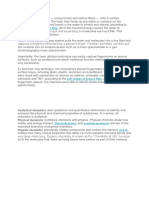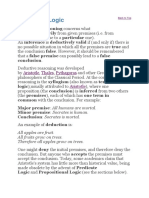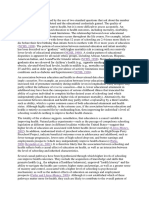0% found this document useful (0 votes)
64 views2 pagesLogic
Logic is the study of reasoning and arguments. It aims to distinguish good reasoning from bad by examining topics like fallacies, paradoxes, and probability. Logic investigates the structure of statements and arguments through both formal systems and natural language. It deals only with propositions that can be true or false, not emotions or images. Logical systems should be consistent, sound, and complete to ensure valid inferences. The history of logic began in ancient India with logical divisions in the Rig Veda and the development of the Nyaya school based on logic involving induction and deduction.
Uploaded by
seqCopyright
© © All Rights Reserved
We take content rights seriously. If you suspect this is your content, claim it here.
Available Formats
Download as DOCX, PDF, TXT or read online on Scribd
0% found this document useful (0 votes)
64 views2 pagesLogic
Logic is the study of reasoning and arguments. It aims to distinguish good reasoning from bad by examining topics like fallacies, paradoxes, and probability. Logic investigates the structure of statements and arguments through both formal systems and natural language. It deals only with propositions that can be true or false, not emotions or images. Logical systems should be consistent, sound, and complete to ensure valid inferences. The history of logic began in ancient India with logical divisions in the Rig Veda and the development of the Nyaya school based on logic involving induction and deduction.
Uploaded by
seqCopyright
© © All Rights Reserved
We take content rights seriously. If you suspect this is your content, claim it here.
Available Formats
Download as DOCX, PDF, TXT or read online on Scribd
/ 2













